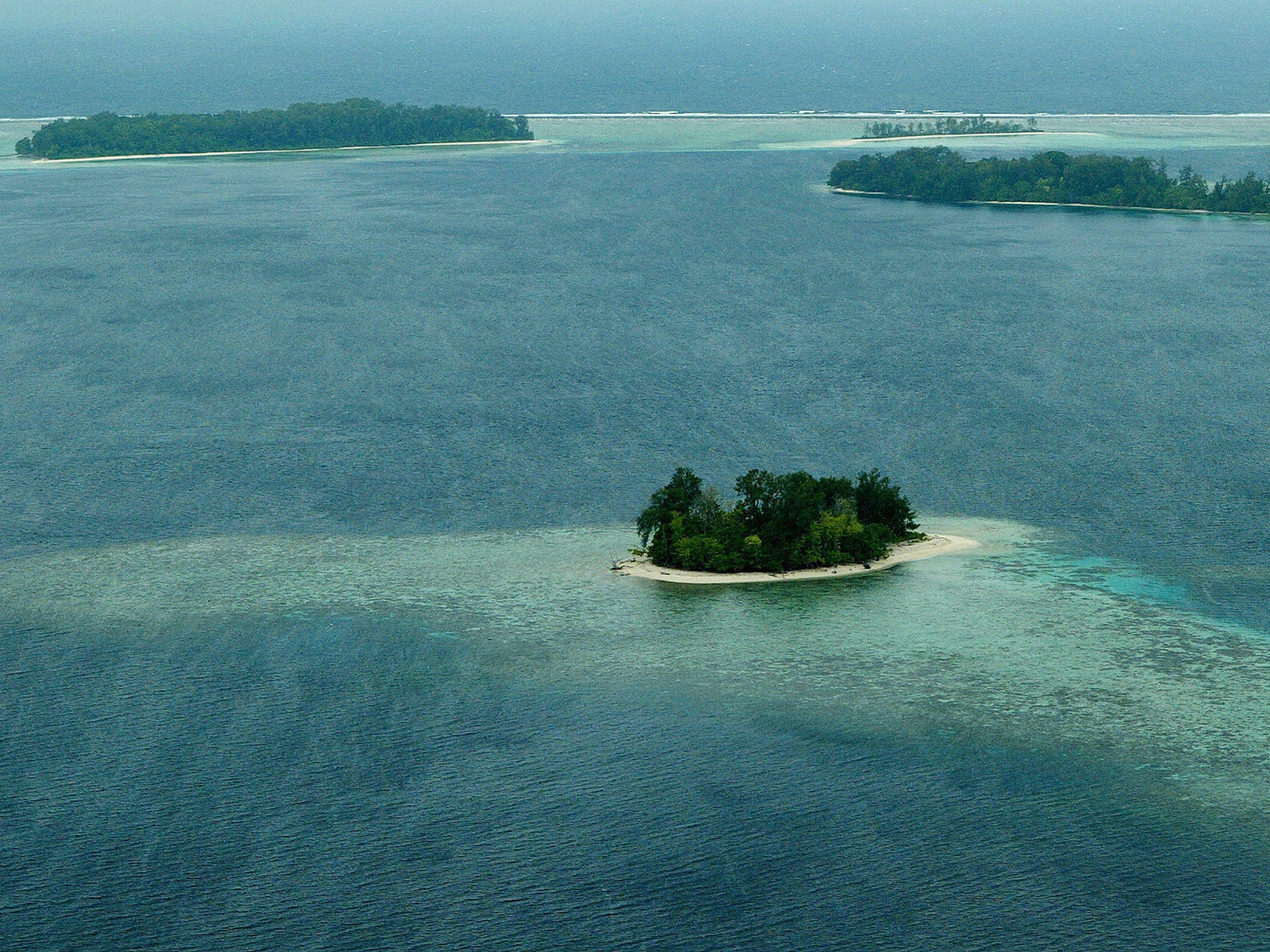Climate change: Five Islands in the South Pacific 'completely lost to rising seas'
'The sea has started to come inland, it forced us to move up to the hilltop and rebuild our village there away from the sea'

Your support helps us to tell the story
From reproductive rights to climate change to Big Tech, The Independent is on the ground when the story is developing. Whether it's investigating the financials of Elon Musk's pro-Trump PAC or producing our latest documentary, 'The A Word', which shines a light on the American women fighting for reproductive rights, we know how important it is to parse out the facts from the messaging.
At such a critical moment in US history, we need reporters on the ground. Your donation allows us to keep sending journalists to speak to both sides of the story.
The Independent is trusted by Americans across the entire political spectrum. And unlike many other quality news outlets, we choose not to lock Americans out of our reporting and analysis with paywalls. We believe quality journalism should be available to everyone, paid for by those who can afford it.
Your support makes all the difference.Rising sea levels and erosion have caused five islands in the South Pacific to completely disappear, researchers have said.
A further six islands have been partially destroyed by erosion and the phenomenon is already causing human displacement, pushing people out of their coastal communities and further inland.
Researchers, writing in The Conversation, said that while rumours and speculation have abounded about problem for some time, their study had now produced the first scientific evidence for land being lost to the seas.
The lost islands ranged in size from one to five hectares and supported dense tropical vegetation that was at least 300 years old.
"They were not just little sand islands," lead study author Simon Albert told AFP news agency.
In addition, Nuatambu Island, home to 25 families, has lost more than half of its habitable area, with 11 houses washed into the sea since 2011, according to the study, which was published in Environmental Research Letters.
The researchers believe similar problems are expected across much of the Pacific after 2050 as a result of human-induced sea-level rises. In all but the most optimistic scenarios for greenhouse gas emissions, many Pacific islands will experience long-term rates of sea-level rise similar to those already experienced in the Solomon Islands.
Numerous communities have been displaced and fragmented by the threat from rising seas, and generations-old settlements have been abandoned in favour of moving further inland.
Sirilo Sutaroti, the 94-year-old chief of the Paurata tribe, recently abandoned his village in the Solomons.
“The sea has started to come inland, it forced us to move up to the hilltop and rebuild our village there away from the sea,” he told the researchers.
In addition, the 1,000-strong town of Taro, the capital of Choiseul Province, is set to become the first become the first provincial capital in the world to relocate the entirety of its population and services in response to the impact of sea-level rise.
The study comprised of analysis of the coastlines of 33 reef islands, using aerial and satellite imagery dating from 1947 to 2015. This was used in conjunction with radiocarbon dating of trees, sea-level records, wave models, and local knowledge.
Waves were found to play a significant role in the coastal erosion which contributed the disappearance and threatens other islands in the Pacific. Islands which were more exposed and subject to ‘wave energy’ deteriorated faster than more sheltered islands, information which may be useful in the future, according to the researchers. The lost islands were among those studied which were subject to more powerful wave energy.
Chair of the Solomon Islands' National Disaster Council, Melchior Mataki, said: “This ultimately calls for support from development partners and international financial mechanisms such as the Green Climate Fund.
"This support should include nationally driven scientific studies to inform adaptation planning to address the impacts of climate change in Solomon Islands.”
Join our commenting forum
Join thought-provoking conversations, follow other Independent readers and see their replies
Comments